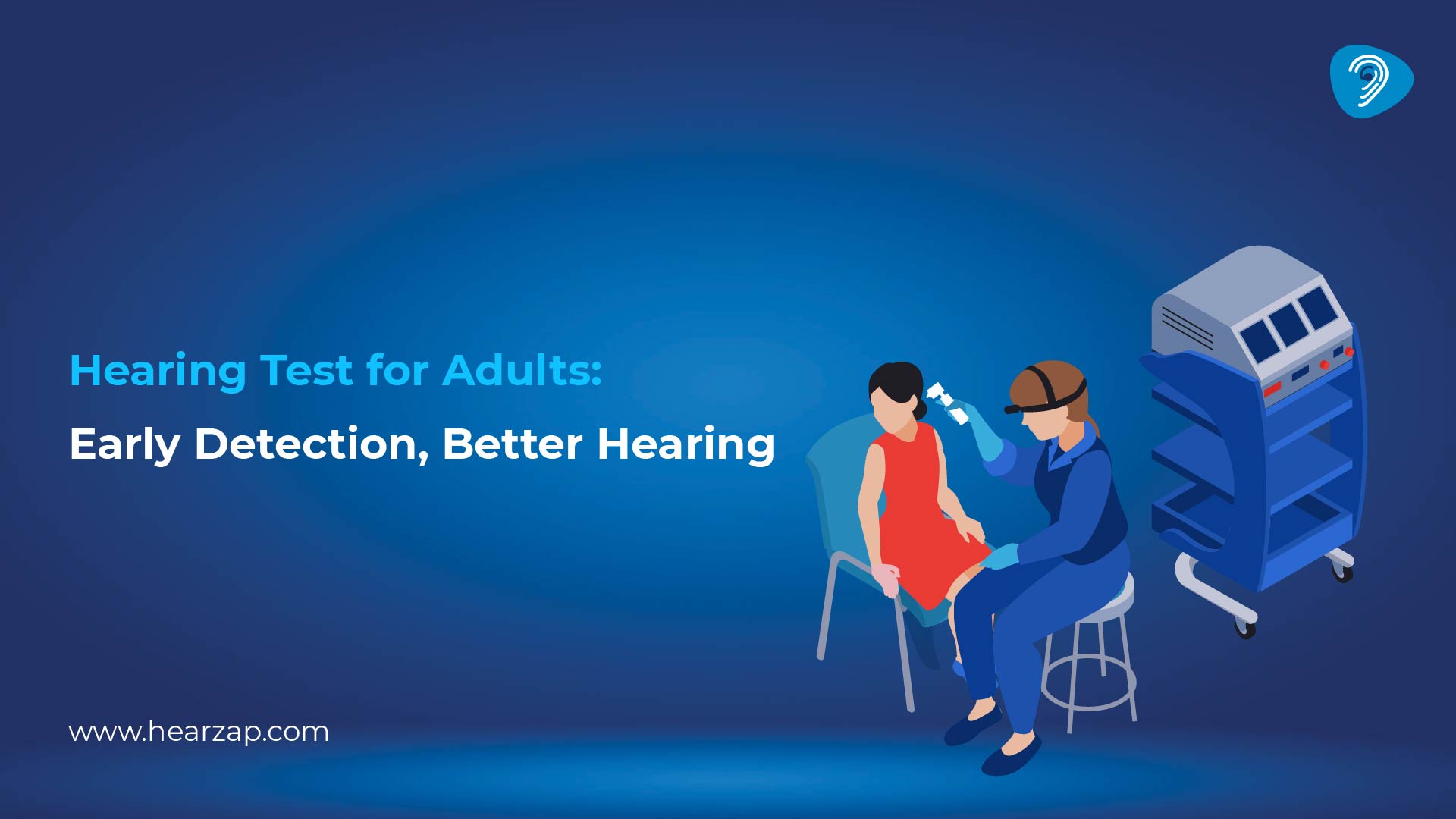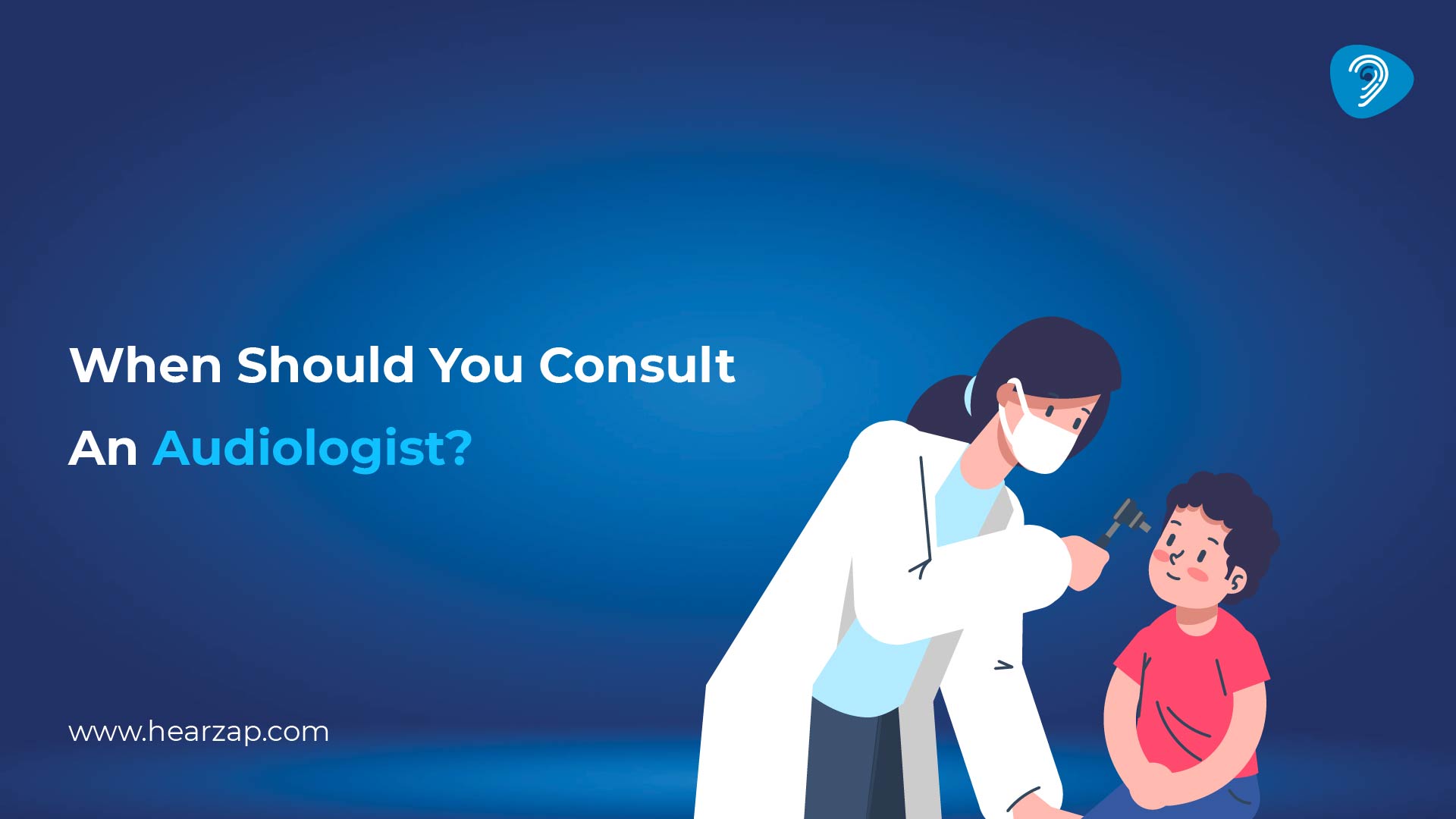HEARING TEST
5 Reasons Why You Should Get a Hearing Test
By Team Hearzap | July 23, 2024
There is no other way to find out how well you can hear than to take a hearing test. To find out if someone has hearing loss, these tests must be done. They help you figure out how bad your hearing loss is. That way, you could get help or hearing aids if necessary.

The below are the reason we may need to consider to undergo hearing test,
- Difficulty understanding speech
- Social Withdrawals
- Impact in Daily Life
- Early Diagnosis and Intervention
- Overall Health and Wellbeing
Difficulty Understanding Speech:
If you have difficulty understanding speech, even in quiet environments, it may be due to hearing loss. This difficulty can manifest as a failure to hear subtle sounds or a reliance on loud noises to understand speech. For example, you may have difficulty following conversations, especially when multiple people are speaking, or hearing soft or high-pitched voices.
Social Withdrawals:
Hearing loss, even in its mildest form, can have a big impact on social interactions. You may find yourself withdrawing from social situations due to difficulty communicating effectively. Conversations can become exhausting or frustrating, prompting you to avoid social situations entirely. This isolation can exacerbate feelings of loneliness and depression, reducing your overall well-being and quality of life.
Impact in Daily Life:
Hearing loss can disrupt many aspects of your daily life, making even simple tasks more difficult. For example, you may struggle to hear the doorbell or phone ringing, resulting in missed calls or visitors. Watching TV or listening to music may become less enjoyable as you struggle to understand the dialogue or lyrics. Furthermore, participating in group activities or events can be difficult because background noise may drown out important sounds or conversations.
Early Diagnosis and Intervention:
Getting a hearing test early on can make a significant difference in managing hearing loss. Early detection allows for timely intervention, reducing further deterioration and improving outcomes. Regular screenings, especially as you get older or if you have risk factors such as exposure to loud noise, can help detect problems early.
Overall Health and Wellbeing:
Addressing hearing loss is critical to maintaining overall health and well-being. Untreated hearing loss has been associated with cognitive decline, depression, and an increased risk of falls and accidents. Getting a hearing test and seeking appropriate treatment can help you protect your overall health and quality of life.
Different Kinds of Hearing Tests
Finding out the type and level of your hearing loss through thorough testing is important for figuring out the best ways to treat and handle it to improve your hearing health. There are different kinds of hearing tests that doctors use to check how well you hear. Here are some common ones:
1. Audiometry Tests: These tests check your hearing by playing tones or words at different volumes and pitches. You wear headphones and sit in a quiet room. The tests might include:
- Puretone Test: This is the most common test. You'll hear high and low sounds through the headphones, some loud and some soft. You'll signal when you hear a sound.
- Speech Test: This checks how well you can hear words spoken at different levels of volume, even when there's background noise. You'll repeat the words you hear.
2. Tuning Fork Tests: These help doctors figure out if your hearing loss is because of nerve problems in your inner ear or if something like fluid or wax is blocking your ears. They use a metal tool called a tuning fork, which vibrates and makes a sound when tapped. The steps are:
- The doctor places the tuning fork behind your ear or on your head.
- The vibrations from the tuning fork travel through your bones to your inner ear, skipping the outer and middle ears.
- If you have trouble hearing the sound, there might be a problem in your inner ear.
3. Tympanometry Test: This checks how well your eardrum and middle ear bones are working:
- A small device is placed in your ear, and air and sound are sent in.
- The device measures how your eardrum moves in response.
- If your eardrum doesn't move normally, there might be fluid or wax buildup, a hole in your eardrum, or another problem in your middle ear.
4. Otoacoustic Emissions Test (OAE): This checks for damage in the hair cells in your cochlea, the snail-shaped structure in your inner ear:
- A device is placed in your ear that makes and measures sound.
- The sound from the device makes the fluid in your cochlea move the hair cells, creating their sound, called OAEs.
- If few or no OAEs are detected, it might indicate sensorineural hearing loss.
Conclusion
Hearing tests are very important for checking how well your ears work and finding hearing loss. Hearing aids and cochlear implants are important ways to treat hearing loss and keep it under control. People who have trouble hearing can greatly improve their quality of life and conversation by using these strategies. To lessen the effects of hearing loss and make it easier to be social, it is important to get a hearing test as soon as possible.
Related Blogs

Test Your Hearing at Home

Hearing Test for Adults - Signs, Symptoms & Types

Online Hearing Tests: Pros and cons of Taking Hearing Tests Online

When Should You Consult An Audiologist?

Decoding the Audiogram: Understanding Hearing Test Results

How to Know if Your Hearing Experience Store Is the Right One for You
Contact us
We are here for all your hearing needs, from hearing tests to hearing aids. Fill out the form below, and we will give you a call soon.
Please enter a valid mobile number with 10 digits.
Recent Blogs
By None | Dec. 22, 2025
By None | Dec. 16, 2025
By None | Dec. 15, 2025
By None | Dec. 13, 2025
By None | Dec. 12, 2025









